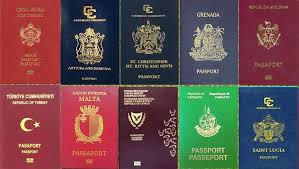
Breaking News
 Foreign globalist is upset that you've got 'untraceable cash' in your pocket…
Foreign globalist is upset that you've got 'untraceable cash' in your pocket…
 Donald Trump delivers West Point commencement speech
Donald Trump delivers West Point commencement speech
 Israel Supporters Turning AGAINST Netanyahu?
Israel Supporters Turning AGAINST Netanyahu?
Top Tech News
 New AI data centers will use the same electricity as 2 million homes
New AI data centers will use the same electricity as 2 million homes
 Is All of This Self-Monitoring Making Us Paranoid?
Is All of This Self-Monitoring Making Us Paranoid?
 Cavorite X7 makes history with first fan-in-wing transition flight
Cavorite X7 makes history with first fan-in-wing transition flight
 Laser-powered fusion experiment more than doubles its power output
Laser-powered fusion experiment more than doubles its power output
 Watch: Jetson's One Aircraft Just Competed in the First eVTOL Race
Watch: Jetson's One Aircraft Just Competed in the First eVTOL Race
 Cab-less truck glider leaps autonomously between road and rail
Cab-less truck glider leaps autonomously between road and rail
 Can Tesla DOJO Chips Pass Nvidia GPUs?
Can Tesla DOJO Chips Pass Nvidia GPUs?
 Iron-fortified lumber could be a greener alternative to steel beams
Iron-fortified lumber could be a greener alternative to steel beams
 One man, 856 venom hits, and the path to a universal snakebite cure
One man, 856 venom hits, and the path to a universal snakebite cure
 Dr. McCullough reveals cancer-fighting drug Big Pharma hopes you never hear about…
Dr. McCullough reveals cancer-fighting drug Big Pharma hopes you never hear about…
Why Dual Citizenship Is The New American Dream

A recent survey conducted by Harris Poll found that four in ten U.S. adults (42 percent) have considered or plan to relocate outside the country to improve their quality of life or financial position. Among Gen Zers, this number went up to 63 percent, while 52 percent of millennials were considering moving abroad.
"For most of modern history, the American Dream was rooted in one place: America. But that's shifting," Tim Osieki, director of thought leadership and trends at The Harris Poll, told Newsweek.
"While dual citizenship used to be reserved for retirees, the wealthy, or those with strong family ties abroad, it's now a growing goal for middle-class Americans who want more control over their future," he said. "It marks a real mindset shift—less about pledging allegiance to one nation, more about staying agile in a world that feels increasingly unstable."
Why It Matters
The American dream, which has fueled migration to the U.S. for the past century and more, was built on the idea that the U.S. was a land of opportunity offering freedom, financial stability, upward mobility, and personal success, as long as you were willing to work for it.
For many ordinary Americans, especially younger ones, that dream has died. It has been killed by the near impossibility of buying a home in the current market and the economic challenges that force them to scramble to keep up with the cost of living and delay their plans to form their own families.
The growing interest toward getting dual citizenship, proved by data shared by attorneys and firms helping customers obtain a second passport, shows that many Americans now believe that other countries can give them better opportunities than the U.S.
What To Know
David Lesperance, managing partner of Lesperance and Associates and a leading international tax and immigration adviser, told Newsweek that the uptick in U.S. nationals looking to get second citizenship originally started in 2016 when Donald Trump was elected over Hillary Clinton.

 The Crypto Apostles
The Crypto Apostles

